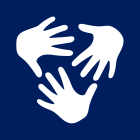Digital4Women: how to enable women empowerment in Africa through mainstreaming digital technologies and services in EU development programmes.
Discussion details
As many countries are experiencing a push towards a “digital economy”, the digital skills and literacy gender gaps need to be addressed. Despite significant investments in digital entrepreneurship, there remains a need to focus on job creation and employment opportunities through tech-enabled businesses as well as on the enabling environment, specifically for youth and women, to ensure that they are not left behind.
To address the digital and gender gaps in Sub-Saharan Africa, the EU established the Digital for Development (D4D) Agenda in Africa. The four core areas of work for digitalisation and international partnerships:
(i) Governance, Policy and regulatory frameworks,
(ii) Connectivity - accelerating the achievement of universal access to affordable broadband;
(iii) Digital skills and support to digitally enabled entrepreneurship;
(iv) Accelerating the adoption of eServices and the further development of the digital economy.
Furthermore, the EU Gender Action Plan III 2021-2025 adopted by end 2020 is based on “(1) key actions to achieve gender equality combined with (2) gender mainstreaming by strengthening the integration of a gender perspective in all EU policies and major initiatives, (3) policy dialogue”.
With these policy structures in min, this study aims to identify the key factors and trends regarding gender and digital in Sub-Saharan Africa, specifically barriers that are holding back women from accessing the opportunities of digitalisation.
This report analyses the trends, policies frameworks and ecosystems as well as challenges and opportunities concerning digital and women’s empowerment in Sub-Saharan Africa.
This is followed by a review of good practices and lessons learnt as well as current EC initiatives to inform the set of policy and programming recommendations.
The analysis at a regional and national level is based on desk research, clustering of international gender and digital Indicators, stakeholder interviews in shortlisted countries and the EC digital project database.
Please also visit the Digital 4 Development group for more information about this issue: https://europa.eu/capacity4dev/digitalisation-4-development

Log in with your EU Login account to post or comment on the platform.